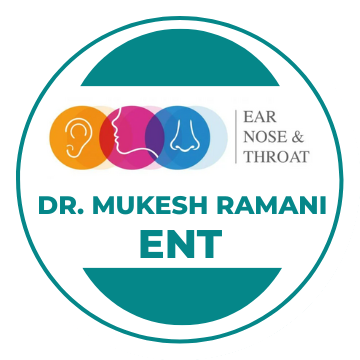Services
We Provide

Understanding Epistaxis (Nasal Bleeding)
Epistaxis, commonly known as nasal bleeding or nosebleed, is a common condition characterized by bleeding from the blood vessels in the nose. While often harmless and easily treatable, recurrent or severe nosebleeds may indicate underlying health issues that require medical attention. Understanding the causes, symptoms, diagnosis, and treatment options for epistaxis is crucial for effectively managing this condition and preventing complications.
Diagnosis of Epistaxis
Diagnosing epistaxis typically involves a thorough medical history review and physical examination by a healthcare provider. During the examination, the provider may assess the severity and frequency of nosebleeds, examine the inside of the nose using a nasal speculum, and evaluate for signs of underlying health conditions that may be contributing to epistaxis. In some cases, additional tests such as blood tests or imaging studies may be recommended to evaluate for underlying health issues.
Causes of Epistaxis (Nasal Bleeding)
Epistaxis can be caused by various factors, including:
- Trauma: Injury to the delicate blood vessels in the nose, such as from nose picking, blunt force trauma, or insertion of foreign objects into the nostrils, can lead to epistaxis.
- Dry Air: Dry air, particularly in arid climates or during the winter months when indoor heating is used, can dry out the nasal mucosa and make the blood vessels more prone to bleeding.
- Nasal Irritation: Irritation of the nasal passages due to allergies, sinus infections, or exposure to irritants such as tobacco smoke or chemical fumes can trigger epistaxis.
- Nasal Fractures: Fractures or injuries to the nasal bones or cartilage can disrupt the blood vessels in the nose and lead to bleeding.
- Underlying Health Conditions: Certain underlying health conditions, such as hypertension (high blood pressure), blood clotting disorders, or nasal tumors, may increase the risk of epistaxis.
Symptoms of Epistaxis (Nasal Bleeding)
Common symptoms of epistaxis may include:
- Bleeding from the Nose: Bleeding from one or both nostrils, which may be mild or severe.
- Blood Clots: Presence of blood clots or streaks of blood in the nasal discharge.
- Nasal Congestion: Nasal congestion or stuffiness, particularly during and after a nosebleed.
- Dizziness: Some individuals may experience dizziness or lightheadedness, particularly if the nosebleed is severe or prolonged.
- Facial Pain: Pain or pressure in the face, particularly around the nose or sinuses.
It’s important to seek medical attention if you experience recurrent or severe nosebleeds, as they may indicate underlying health issues that require treatment. Treatment for epistaxis may include simple measures such as applying pressure to the nose, using nasal saline sprays to moisturize the nasal passages, or using nasal packing or cauterization techniques to stop bleeding. In cases of underlying health conditions contributing to epistaxis, treatment may involve managing the underlying condition to prevent future nosebleeds.
18+
years
of experience

Dr. Mukesh Kumar Ramani
Dr. Mukesh Kumar Ramani is a dedicated Specialist ENT Surgeon at Aster Clinic (Aster Jubilee Medical Complex) in Burdubai, Dubai. With over 18 years of experience in the field, Dr. Ramani has garnered expertise in various aspects of Otorhinolaryngology.
He completed his MBBS from Thanjavur Medical College, Tamilnadu, India, followed by MS (ENT) from B. J. Medical College, Ahmedabad, India, and DNB from the National Board of Examinations, New Delhi, India. Dr. Ramani’s extensive academic background is complemented by his passion for delivering high-quality patient care.
